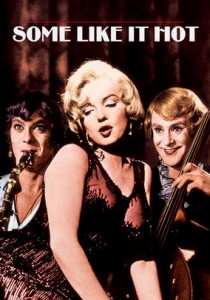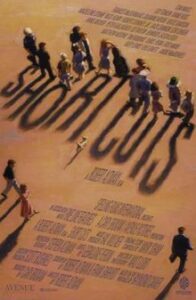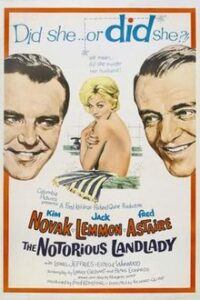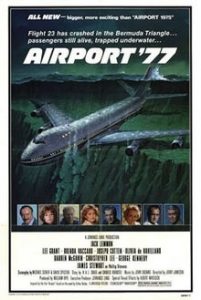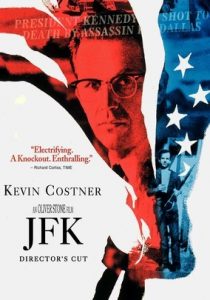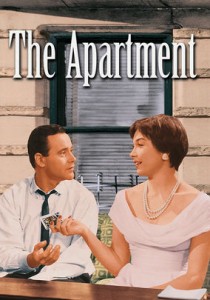Some Like It Hot-1959
Director Billy Wilder
Starring Marilyn Monroe, Jack Lemmon, Tony Curtis
Top 250 Films #88
Scott’s Review #388
Reviewed March 26, 2016
Grade: A
Considered one of the best comedies ever made, Some Like It Hot (1959) is a funny, outlandish, yet controlled film that never goes too over the top or dives into outrageous camp. Instead, it is well-written, well-acted, and contains excellent chemistry between the stars.
In summary, it is a film in which all the elements come together just right. In film comedy, this is an infrequent occurrence. Instead, we are typically treated to formulas or retreads of past successes.
Some Like It Hot feels refreshing and brilliant.
The film was also monumental in paving the way to the eventual elimination of the hated Hays Code, which imposed many restrictions on American cinema from 1930 to 1968.
Some Like It Hot pushed the envelope in essential ways, leading to a spike in creativity and art within the film industry that lasted mainly throughout the 1960s and 1970s.
For that, it is a masterpiece.
Down on their luck, broke, and needing work, Jerry and Joe (Jack Lemmon and Tony Curtis) are struggling jazz musicians seeking a meager existence in snowy Chicago. Having witnessed the St. Valentine’s Day massacre, they go on the run from the assailants, who have seen them, and pose as Josephine and Daphne, dressed in drag.
This leads to one humorous situation after another as they take the bus from Chicago to Miami with an all-girl musical band, a sort of slumber party led by boozy starlet Sugar Kane (played by Marilyn Monroe), who serves as the band’s vocalist and ukulele player.
Once arriving in sunny Miami, “the girls” find themselves entangled in romantic relationships with Sugar and the wealthy millionaire Osgood Fielding III, which leads to some blatant comic antics. Josephine poses as a male Shell Oil Junior, attempting to woo Sugar with his assumed riches in the oil business.
What makes Some Like It Hot work so well is that it does not go too far over the edge to seem campy, nor does it play it too straight. This perfect balance makes the film rich with natural, fresh comedy.
Director Billy Wilder chose to film in black and white, avoiding Lemmon and Curtis looking ridiculous with colorful, bright makeup. This was toned down and muted to allow for greater believability.
Additionally, the film’s subtle edginess impresses me with each passing watch. Some Like It Hot got away with a lot in 1959, considering the restrictions, and that knowledge gives it a groundbreaking quality.
There is an air of homosexuality throughout, and the final line is my favorite, allowing for a thought-provoking interpretation.
When Daphne reaches her breaking point with Osgood’s romance and yanks off his wig, she professes exasperation, “I am a man!! ” Only to hear Osgood’s startling reply, ‘Well, nobody’s perfect,’ is clever dialogue.
Did Osgood know all along that Daphne was male? Will he marry ‘her’ anyway?
Who wouldn’t have blushed gazing at Monroe’s skin-colored and quite revealing outfit? It gave the impression that she was nude and showed how funny Lemmon and Curtis’s physical comic timing together is.
Bumbling around in stockings, heels, and dresses, attempting to be feminine but never quite succeeding, makes all the other characters think they are women, which is excellent.
Curtis was reportedly quite uncomfortable in drag, which shows on camera, but this works out well, giving Josephine a natural awkwardness.
Lemmon went all out in his costumes, and his energy came across.
In my opinion, although not looking her best, slightly plump and tired, Marilyn Monroe still gives the film added life and charm, and who is not mesmerized by her on stage singing “You Wanna love me”?
To think that Monroe died only three short years later is sad, and it highlights the appreciation for her career in its final stages.
A risqué, laugh-out-loud, funny treat, Some Like It Hot resonates with me and did so with audiences upon release in 1959.
Comical, thoughtful, and highly influential, the film is a must-see for fans of honest and cliché-free film comedy.
It is a blueprint for all witty comedies to follow.
Oscar Nominations: 1 win-Best Director-Billy Wilder, Best Actor-Jack Lemmon, Best Screenplay Based on Material from Another Medium, Best Art Direction, Black-and-White, Best Cinematography, Black-and-White, Best Costume Design, Black-and-White (won)
